Croatia Logs 316 New Coronavirus Cases, 68 COVID Deaths
ZAGREB, Dec 28, 2020 - In the past 24 hours 316 new coronavirus cases have been registered in Croatia and 68 COVID-19 patients have died, the national COVID-19 response team said on Monday.
The number of active cases is 8,036, including 2,720 hospitalised patients, of whom 256 are on ventilators.
Since February 25, when the new virus was first reported in Croatia, there have been 205,246 cases of infection, 3,739 COVID-19 deaths and 193,471 recoveries, including 2,245 in the past 24 hours.
Currently 30,780 persons are self-isolating. To date 996,935 persons have been tested for coronavirus, including 2,642 in the past 24 hours.
Branka Anicic is First Person in Croatia Vaccinated Against Coronavirus
December the 28th, 2020 - The long awaited vaccine against the novel coronavirus, SARS-CoV-2, has finally arrived in the Republic of Croatia. Vaccination began on the morning of the 27th of December, following the arrival of the vaccines in the country early on Boxing Day morning. Branka Anicic, a citizen of the capital, was the first person in Croatia to receive the vaccine.
As Poslovni Dnevnik writes, Branka Anticic from the Tresnjevka Home for the Elderly in the City of Zagreb has gone from anonymity to being the very first person to receive the new Pfizer coronavirus vaccine here in the Republic of Croatia. After receiving vaccination, Branka Anicic gave a statement to the eager media.
"I just got vaccinated. I'd like to send my greetings to everyone, we are overjoyed that our home was chosen, and that I've been the first to receive the vaccine. Let's finally start moving on with a new life, I hope that will be able to happen soon. The vaccine came quickly, faster than we'd hoped it might. It is now here, now we all need to accept it, for the sake of our friends, our family, and ourselves,'' Branka Anicic said.
"I didn't even feel the vaccination, the needle, it's as if nothing even happened. We can return to socialising at home, taking part in activities, enjoying the parks and enjoying the flowers,'' the Zagreb resident sweetly added. She was not afraid of receiving the vaccine, she says, and has since called on everyone to get vaccinated against the novel coronavirus in order for us all to collectively move on from 2020 - the year from hell.
For the latest travel info, bookmark our main travel info article, which is updated daily.
Read the Croatian Travel Update in your language - now available in 24 languages
Join the Total Croatia Travel INFO Viber community.
Radimir Cacic: I Don't Expect Cafes, Restaurants to Open Before Spring
December the 28th, 2020 - The Pfizer vaccine might be here and the number of new infections in Croatia might be dropping, but Radimir Cacic still isn't confident cafes, restaurants and other catering and hospitality facilities will be open before spring comes around.
As Poslovni Dnevnik writes, in Varazdin County, which suffered horribly recently with the spread of the novel coronavirus, vaccination is beginning with the most vulnerable group in a Home for the Elderly which has 360 beds.
Radimir Cacic, the Varazdin County Prefect, explained what the vaccination plan for that particular previously hard hit Croatian county is going to look like.
''I'm definitely going to get vaccinated, but unfortunately, regardless of my age, I'm not going to be among the first to receive it. I won't be in the first group of people. Dr. Proskura, who is 88 years old and who is one of the users of the home, as far as I know, will be the first citizen of Varazdin County to be vaccinated today. After the first five vaccinations here [in the home for the elrderly], employees at the Varazdin Emergency and General Hospital will be vaccinated. There are 525 vaccines all together at the minute, so we'll deal with this quickly,'' Radimir Cacic said in conversation with RTL.
According to all statistical indicators, the number of newly infected people is, thankfully, declining.
"It was allvery clear. I understand the caution, but we've seen a decline in all indicators for four weeks now. Therefore, there can be no coincidence anymore. Things are completely clear. We've dropped from over 1200 to just over 300 newly infected people today. So the incidence has been reduced by four times. Now we're looking at completely different numbers,'' stated Radimir Cacic.
He also commented on the return of life to more normal conditions and the abolition of anti-epidemic measures.
"That won't be done before we've finished with vaccinating the most high-risk groups of people, so I don't expect much before spring. The measures will most certainly remain in place until spring,'' concluded Radimir Cacic.
For the latest travel info, bookmark our main travel info article, which is updated daily.
Read the Croatian Travel Update in your language - now available in 24 languages
First Two Employees of Zagreb's Dubrava Hospital Vaccinated Against COVID-19
ZAGREB, Dec 27, 2020 - A physician and a nurse working in the intensive care unit of Zagreb's Dubrava hospital, converted into the central hospital treating COVID-19 patients in Croatia, got vaccinated against the disease on Sunday.
The vaccination was attended by Health Minister Vili Beros.
Thirty-five employees of the hospital will get immunised today and a total of 200 doctors and nurses working at the hospital will be vaccinated in the next two days.
Acting hospital director Ivica Luksic said that today was a big day, encouraging in many ways.
"The KB Dubrava hospital and all its employees have been on the front line of the battle against the pandemic from the very first day and for all of us this is a new beginning in the treatment of this disease," he said.
Minister: We will reward KB Dubrava for selfless work done
Minister Beros underlined the role of the KB Dubrava hospital, which has been the most important centre in the country for the treatment of COVID-19 patients since March.
"More than 450 people are treated and 69 receive respiratory support on a daily basis at Dubrava. I learned this morning that 360,000 litres of liquid oxygen is spent an hour in the treatment of our patients. We could not have created such conditions in any other Zagreb hospital," Beros said, adding that if possible, the government would compensate the hospital and all its employees for their selfless work.
"We will consider expansion to include new, research elements and new services. Once this epidemic is over, that will be a sign of gratefulness to all Dubrava hospital employees," said the minister.
Beros said the number of infections in the past two days was small but that fewer tests were performed, noting that it was encouraging that the number of new infections had been declining in the past two weeks.
He said that the number of new hospital admissions today was higher than on Saturday but that there were fewer patients on ventilators than yesterday.
"The number of fatalities is the result of developments in the last 2-3 weeks. That number is expected to start going down in a week and a half because the mortality rate will start following the trend in the number of new infections," said the minister.
First Medical Workers Get Vaccinated in Zagreb
ZAGREB, Dec 27, 2020 - The first medical workers in Croatia got vaccinated against COVID-19 on Sunday, and the vaccines were dispensed at Zagreb's "Dr Fran Mihaljevic" hospital for infectious diseases.
Resident Nikolina Bogdanic, the first medical worker to get vaccinated, said that she had no doubts as to whether to get immunised.
"Considering what I have been witnessing on a daily basis, I never had any doubts as to whether I should get vaccinated," she said, adding that she was happy the vaccine had arrived in Croatia so quickly.
"Every vaccination is a big step in the fight against this ugly pandemic," Dr Bogdanic said.
Markotic: Today is important, optimistic day; Beros: We have a powerful weapon
The head of the "Dr Fran Mihaljevic" hospital, Alemka Markotic, said that today was a very important and optimistic day.
"It is very important that we all understand how important it is to protect oneself in the coming months and to get vaccinated in line with the vaccination schedule. The more people get vaccinated, the greater the chance will be that we will protect ourselves," Markotic said.
She said that 30 employees of the hospital would get vaccinated today and that priority was given to young people.
Health Minister Vili Beros, who attended the vaccination, said that the start of vaccinations heralded an end to the pandemic but he called for compliance with epidemiological restrictions during the cold winter months.
"We now have a powerful weapon in the fight against COVID-19," the minister said.
"Vaccination is a medical procedure that has saved the most lives in the history of medicine, so let us see to it that that is so this time as well. Vaccination has reduced or eliminated a large number of diseases, let us hope it will be the same with COVID-19... Vaccines reduce the clinical effects of dangerous diseases, so let us be optimistic and get vaccinated," the minister said.
He noted that talks had been held with representatives of family physicians and that vaccination offices and mobile teams were being organised. Also, work is underway on launching a platform that will make it easier for family doctors to keep a record of people interested in getting vaccinated, the minister said.
He called on citizens to contact their GPs, noting that they are the most relevant factor in assessing their condition and everything related to vaccination.
"Since the vaccination of larger groups of the population is expected in the spring, there is enough time until then and we will certainly organise the vaccination in the best possible way," said Beros.
HZJZ head: Another 8,000 doses to arrive next week
The head of the Croatian Public Health Institute, Krunoslav Capak, said that slightly fewer than 8,000 doses of the COVID-19 vaccine would arrive in Croatia next week, and that 17,000 doses would arrive in the week after January 4.
After that, 18,000 doses of the Pfizer vaccine will be arriving on a weekly basis, after which slightly greater quantities will be arriving, he said.
Capak expressed hope that after January 10 larger quantities of the Moderna vaccine would start arriving as well.
Earlier in the day, vaccination against COVID-19 began in Croatia, with 81-year-old Branka Anicic, a resident of a Zagreb retirement home, being the first person to get vaccinated.
Croatian Healthcare Workers: Christmas's Forgotten Heroes?
December 28, 2020 – Amidst the difficulties of a second lockdown, a socially distanced Christmas and yet more earthquakes, have we forgotten about Croatian healthcare workers? TCN decided to interview a doctor working on the front line of the fight against COVID
During the first lockdown, it was all about the balconies. Saxophonists, DJs, opera singers – we were entertained on social media by a string of balcony-based stunts that somehow showed resilience, community spirit, humour. Zagreb was no exception. A trend of clapping on balconies in appreciation of healthcare workers passed from country to country and was picked up in Zagreb. After the applause finished, people went back inside. Nothing much had changed. It was a nice enough gesture.
Since the start of summer, no such applause has been heard. Perhaps the release from lockdown gave the signal that the lives of Croatian healthcare workers had also become much easier? That certainly wasn't the case. Though the number of people infected with COVID has grown significantly over recent weeks, Croatian healthcare workers have been treating people sick with COVID since springtime.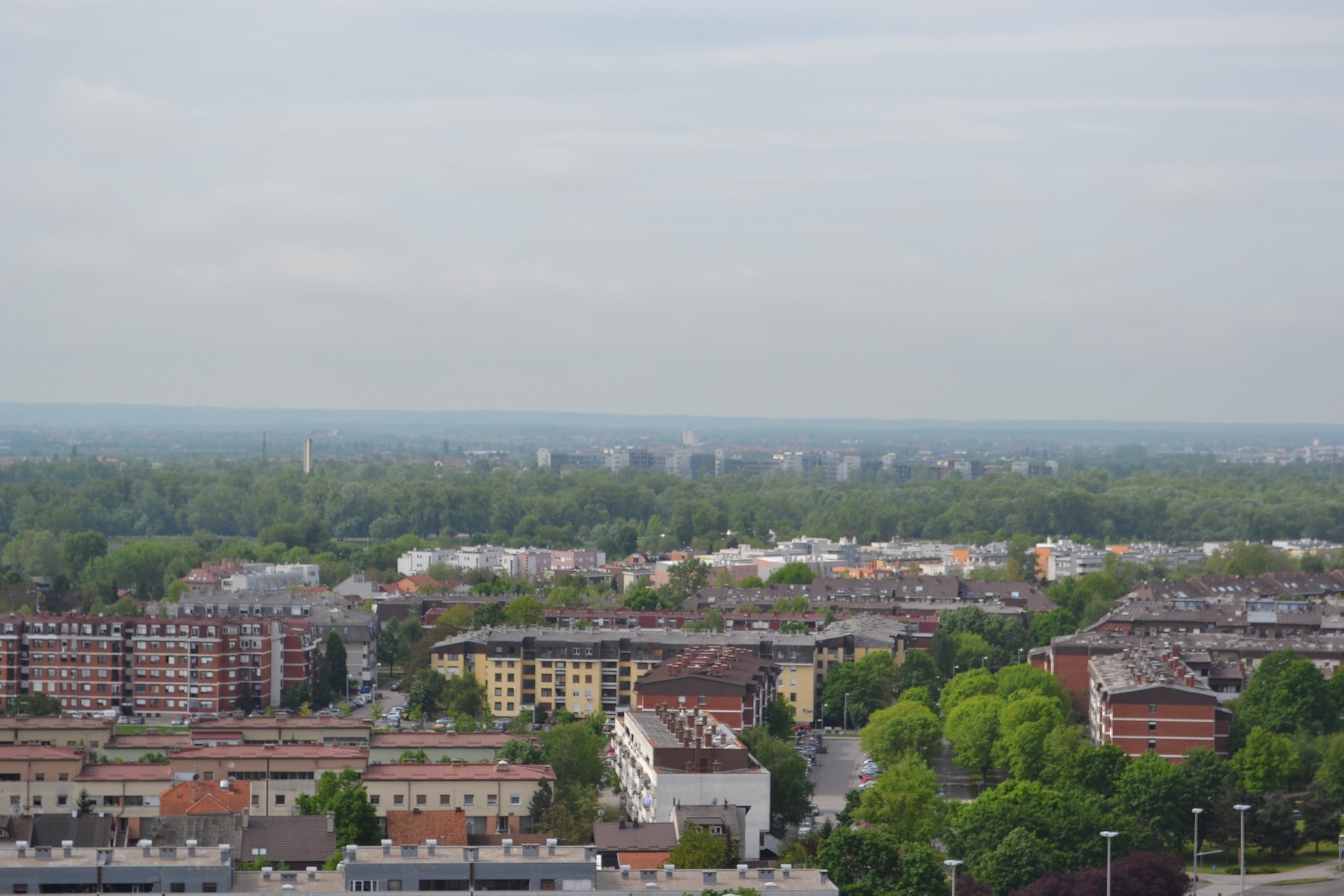
Croatian healthcare workers are currently busier with COVID patients than at any time before. And yet, there are no more trips out onto the balconies to show our appreciation for them. Perhaps it's now too cold outside? Perhaps some aren't aware how busy Croatian healthcare workers currently are with COVID patients? Are we perhaps guilty of taking Croatian healthcare workers for granted? Or, maybe we have simply put Croatian healthcare workers to the back of our minds as we struggle with our own challenges?
Throughout this year, TCN has been pleased to report many instances of generosity and innovation directed towards the fight against COVID. Certainly, not everyone in the country is guilty of forgetting about the Croatian healthcare workers who are on the front line fighting this disease. But, how much impact do these instances have on the general lives of Croatian healthcare workers? What is it like to no longer hear the nightly appreciation from our balconies? And, just what is life like as one of the many Croatian healthcare workers battling COVID in the year of the pandemic? TCN decided to interview one to find out.
The doctor we spoke with is a resident physician, working at a smaller community hospital in the continental part of Croatia. They agreed to speak with us on the condition that they do so anonymously.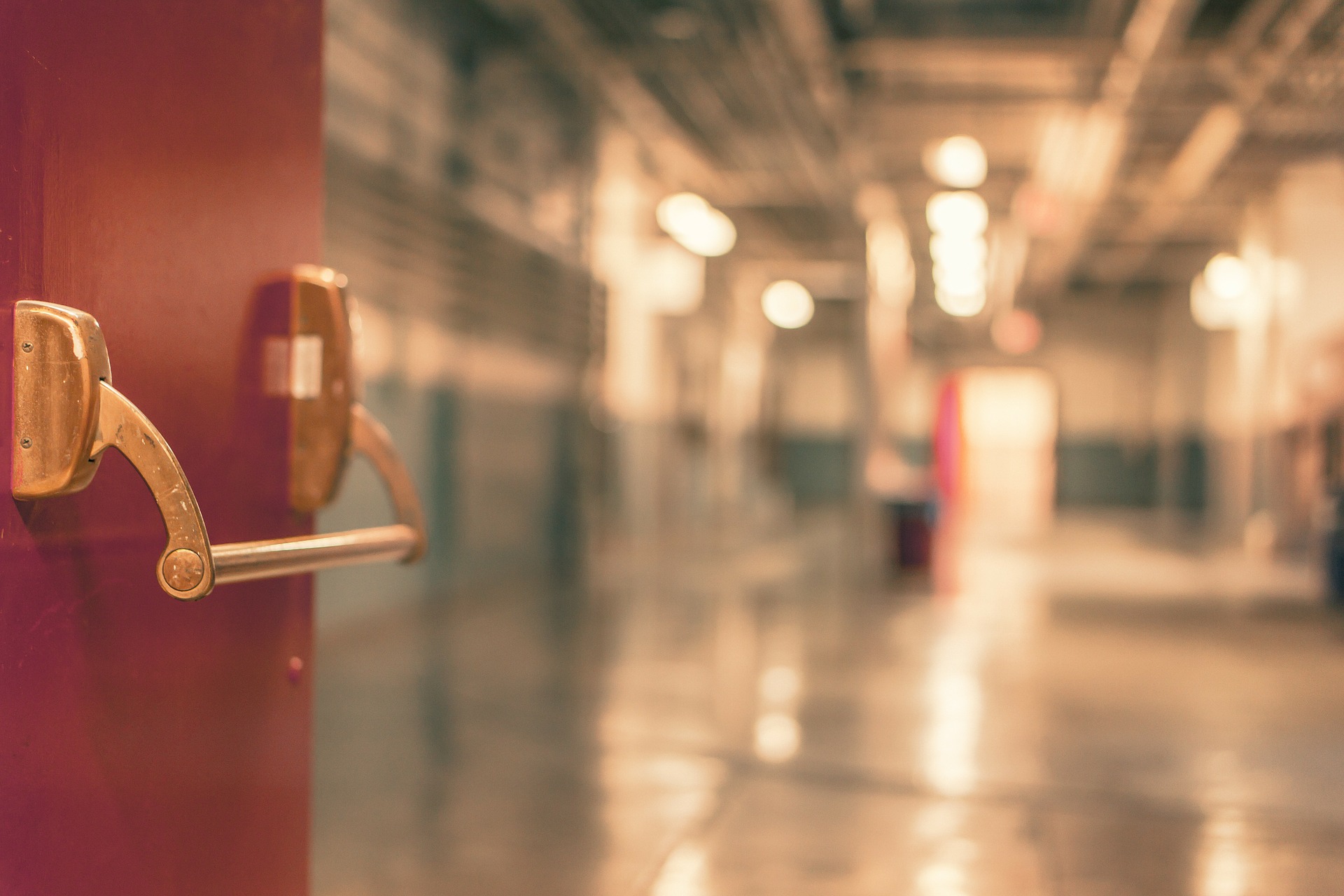
Looking back at the first lockdown, we didn't know so much about COVID back then. We didn't know exactly how it was spread, the different manifestations of the disease, what course the disease took, nor what the recovery could be like. I think the government did a really good job of responding to the threat as they saw it. We had a small spike in cases, but that is minuscule to what we have now.
I think people generally did what they were told because they thought it would be temporary and they could see the sense in starving the disease out.
At the hospital, we were at first caught a little off guard with the amount of PPE we had and some other resources that we needed. For ICU and ventilators, we were well equipped.
Some of the residents were given some paid leave. It was important to put human resources into tiers. Croatian healthcare workers were certainly more predisposed to catching the disease, simply because they were around it every day.
After such great early successes, I was surprised that everything was relaxed later on to allow the tourist season to take place how it did, and for events like the Vukovar commemoration. It felt like it was a calculated risk. The lockdown we are now in is perhaps too little, too late. The disease is out there now, wild. The numbers of infected people are significantly higher.
The difficulty with this disease is that people can be infected and have very few or no symptoms at all. They might not know they are spreading the virus. You might not know you're sitting next to someone who has it.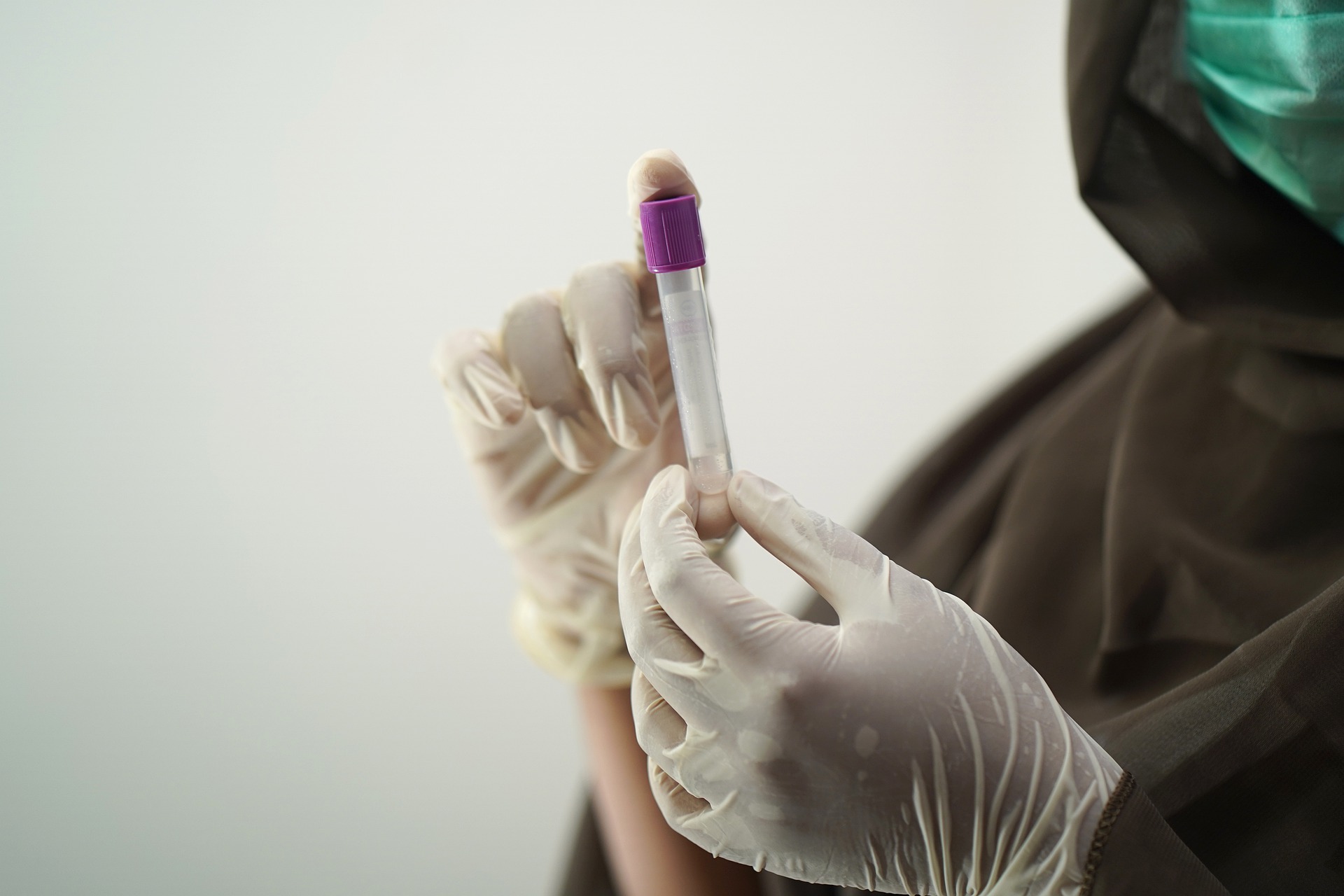
Even though we're not at the centre of care for a major population area or city, we saw cases of the disease almost immediately. Our community hospital services an area containing around 150, 000 people. The first cases in April came from nursing homes – elderly, vulnerable people, many with pre-existing conditions. We were well equipped to handle it. Now, we are stretched on a daily basis. We fill the beds with sick people as soon as we empty them.
We wear masks and PPE all day, all the time. All Croatian healthcare workers in hospitals currently do this. Every patient who comes in, regardless of their symptoms, we treat them as though they are carrying the disease.
A lot of residents like me, who are working towards getting their specialty, go to do some periods of work in larger hospitals in the bigger cities. Now, many of those residents have been called back to their community hospitals – we are short on human resources.
The hospital has had to restructure itself significantly. Lots of doctors have been asked to provide cover in the emergency department. Over half of that area is now fully dedicated to COVID.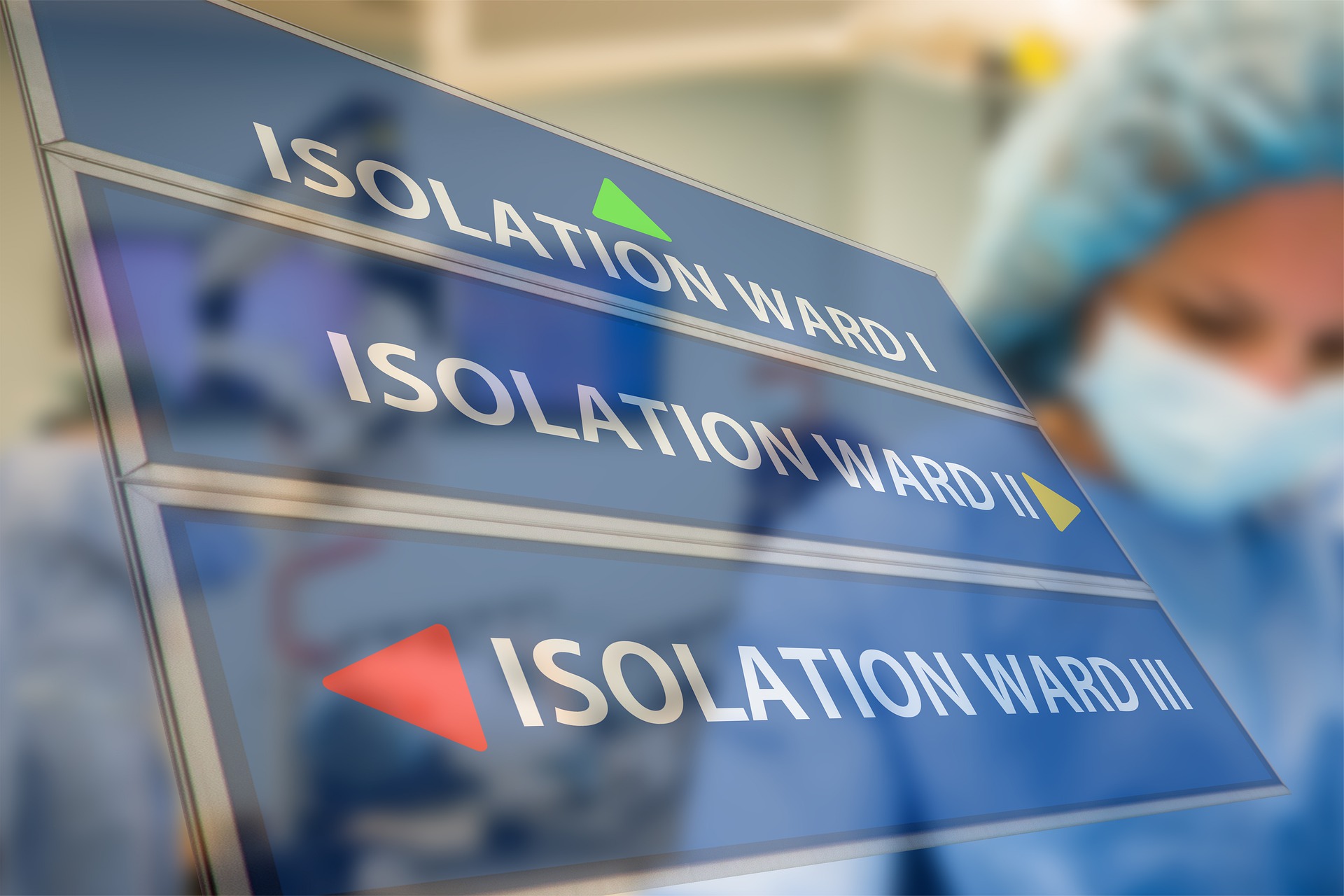
What do COVID patients look like in regards to their symptoms? It depends on their age and risk group, but you see people who look like they have flu or bacterial pneumonia, you see people who are in acute respiratory distress. Sometimes they have neurological changes, some of them look like they have had a stroke. Some people who have been infected and have supposedly got over the worst of the symptoms, come back in after a month or two with blood clotting problems – blood clots in the legs, which have a tendency to travel up to the lungs and cause a pulmonary embolism. That's a pretty big medical emergency. Some who have pre-existing heart conditions come in with a heart attack triggered by them catching COVID – it's more complicated trying to revive someone when you know they have COVID. The presentation of the disease is so variable.
It's not only older people. I've seen young people be admitted with serious reactions to COVID - young, healthy people who have no pre-existing conditions. I've seen young people come in with mild symptoms, they are sent home with antibiotics and steroids. That is the standard treatment – antibiotics to prevent a bacterial super-infection and steroids to prevent an acute reaction by the body's immune system to COVID. - that's what can cause big problems later on, in the course of the illness. But, sometimes that's not enough. I had a young patient just last week - super healthy, worked out regularly, no pre-existing conditions – and his lungs just looked awful. He had to go to the ICU immediately (sadly, this patient later died). That's like no disease I've ever seen before. Really, COVID is a completely new kind of animal.
The new strain of COVID? There is evidence that it can be spread more easily, and that it can affect more younger people, but there is no evidence that it is any more severe. The vaccines will work against it.
We're short on ventilators now. Really, we need two free ventilators at any time, in case there is an emergency admission. We are not currently in the position where we always have two free ventilators – sometimes they are all in use. That's a worry. I worked one shift where the anaesthesiologist said “We just don't have any more space for them – we will just have to put them in the hallway”. I've never seen that before.
I've heard of Croatian healthcare workers, colleagues in other hospitals getting sick with COVID and the hospital asks them to prove they got sick at work. It's pretty clear that's the most likely place they would have got sick because they're working with COVID patients. They were forced to be off work, but only on a lower level of sick pay. If you get ill because of being at work, you get full pay. But, they couldn't prove it, so they didn't get that.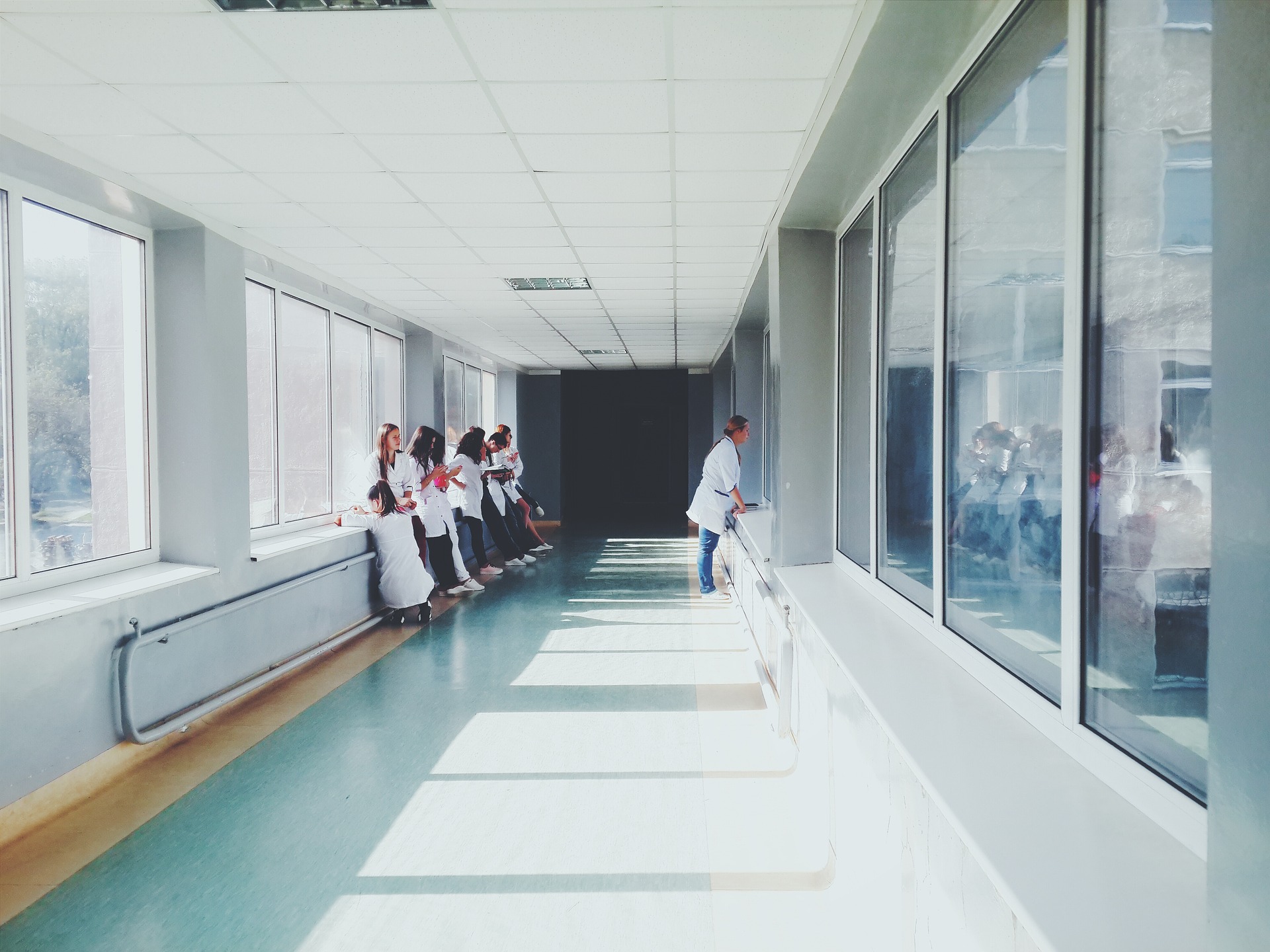
I've been lucky – I haven't caught COVID yet. Well, as far as I know. My pay hasn't gone down, it's gone up – but only because I'm working so many double shifts. I volunteer to provide cover when other members of staff get sick. The specialists – the consultant doctors – they have it worse than us resident doctors. They are more responsible, so they are expected to work more hours. Nobody is pressured or threatened into picking up extra shifts, it's just something that almost all of us just do.
I've read some nice stories about fundraising efforts and donations to Croatian healthcare workers and hospitals in different parts of the country. Everything is appreciated. But, I personally haven't seen any effect of that on our day to day lives at work. Not at our hospital. Maybe there were PPE donations or cash donations, but it hasn't impacted the daily lives of me and the Croatian healthcare workers who are my colleagues. I think I heard that a local garage was giving free cups of coffee if you show your medical ID. Every little is appreciated.
For me and the Croatian healthcare workers who are my colleagues, instead of any kind of personal discounts or donations to staff, we would much prefer if people just took this disease more seriously. Things look very different when you work in a hospital compared to someone outside who maybe doesn't know anyone who got sick.
I came off a particularly difficult double shift a couple of months ago – it was just non-stop COVID admissions, some severe cases. As I was walking home, I walked past a bar that's near to the hospital. They had signs on the walls telling people to keep their distance. But, the bar was absolutely packed – full of young people. It just felt so disappointing. I couldn't help but think of the older relatives they would come in contact with, some who might get really sick.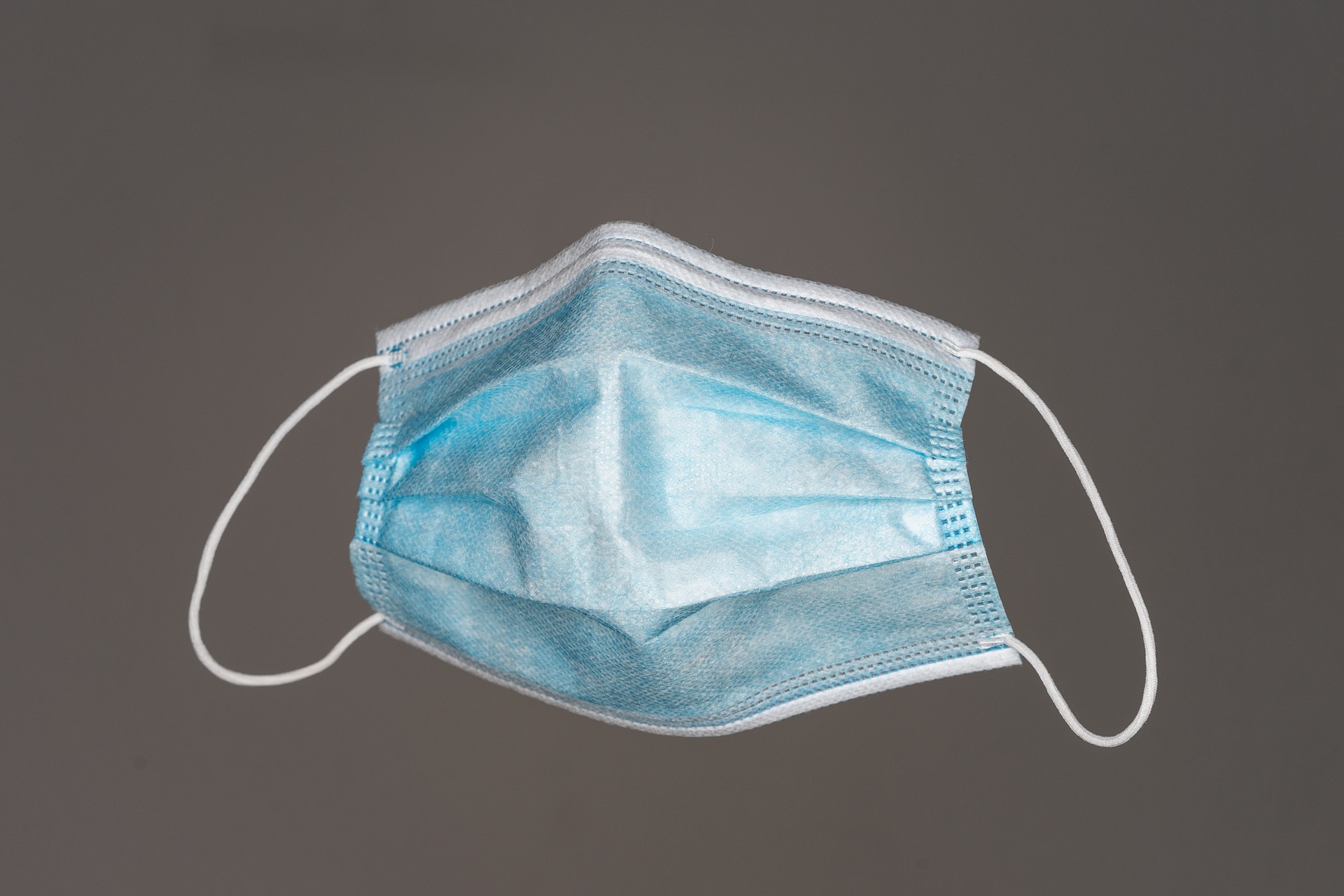
Instead of people clapping on balconies, I think Croatian healthcare workers would just prefer more general vigilance and personal responsibility – wear your mask, wash your hands regularly, no more parties in the basement. Clapping on balconies is a nice gesture, but ultimately it's an empty one.
How does it feel to know that there are some people out there, in every country, all around the world, who believe COVID is a hoax, or a plot, or not so serious, or that the vaccine is dangerous or something other than what it is?
Well, it's not always the content of the conspiracy theory that appeals to these people as much as it is their inability to accept facts – the truth – because they have little faith in the authorities that are telling them this. Here in Croatia, I think that distrust is quite high – a lot of people are disillusioned with the state and politics, because of corruption. Sometimes over 50% of the population choose not to vote. The dissemination of misinformation over social media doesn't help - if that's where people get their news from. If you look at that example from your own country, where strict measures about movement were put in place by your government, and immediately afterward, the Chief Advisor to the Prime Minister, was caught breaking them to travel across the country with his family to a second home in the countryside, going out on day trips. And he was defended by his colleagues after he was found out! When people see those kinds of things happening, the distrust between people and the authorities just grows.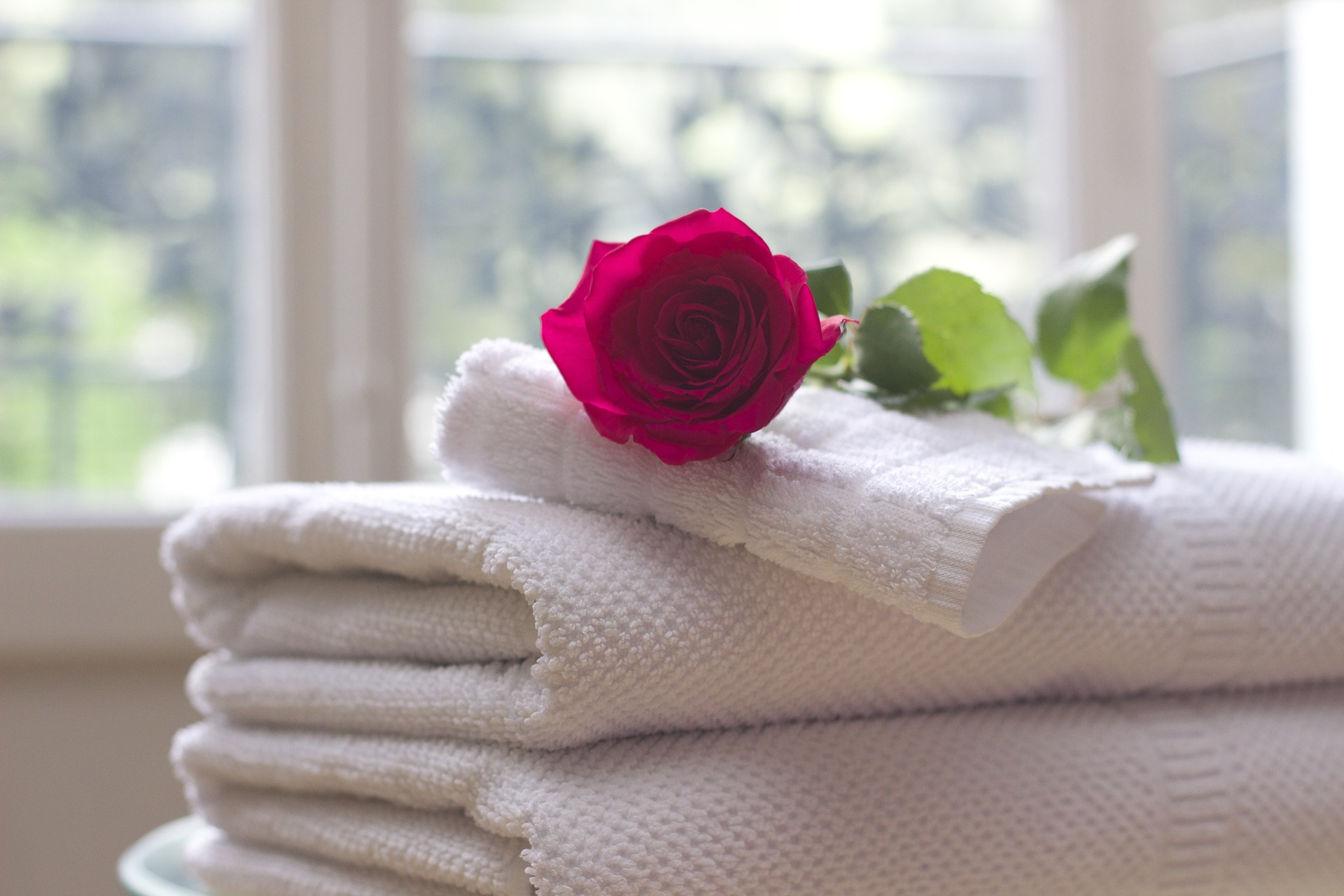
All of the images in this article are used as illustrations only. None of the places or people depicted are in Croatia or Croatian, except for the first image, a panorama of Zagreb
COVID-19 Vaccine is Safe, Says Member of Gov't Scientific Advisory Council
ZAGREB, Dec 27, 2020 - A member of the government's Scientific Advisory Council, Andreja Ambriovic Ristov, has said that the arrival of the COVID-19 vaccine in Croatia is the beginning of "the end of the abnormal situation we have been living in for ten months."
The first 9,750 doses of the Pfizer-BioNTech COVID-19 vaccine arrived in Croatia early on Saturday morning and the vaccination was set to start on Sunday.
Ambriovic Ristov, who heads the Department for Molecular Biology of Zagreb's Rudjer Boskovic Institute, said in an interview with Croatian Television on Saturday that the situation regarding the COVID-19 pandemic would not get back to normal so soon and that the dynamic of the vaccination would determine how soon herd immunity would be achieved.
It is assumed that immunity requires vaccinating 70% of the population, but there is a possibility that more people will have to get vaccinated, she added.
She noted that people should not relax too soon and that they should comply with the epidemiological restrictions in force.
"The current restrictions cannot be relaxed. They are good, the government made the right decision because two weeks ago, when they were introduced, the number of new infections started to decline. Unfortunately, the decline in hospital admissions is small but the number of fatalities is unfortunately still not going down," she said.
Ambriovic Ristov noted that one would have to live with restrictions until a majority of the population was immunised and until it became evident that the virus was circulating less in the population.
She said that it was not likely that people would be able to stop wearing face masks by autumn, but that the end was in sight.
She said that the vaccine was safe and that vaccination would not change anything in the human genome.
"We will stay as we are, the vaccine is completely safe," she said, stressing that only those with a history of more serious allergic reactions should be on guard.
Researcher: Vaccine won't yield effects before March
Researcher and molecular biologist Ivan Djikic said on Saturday that the vaccine that arrived in Croatia earlier in the day would not yield effects before March and stressed that compliance with epidemiological restrictions in January and February was essential for protection.
Expressing confidence that more than 70% of the population would get vaccinated based on positive results, he said that one should continue to be cautious because the vaccine alone would not defeat the disease.
It will take four to five weeks for the vaccine to yield a positive effect. "January and February are the months when we will have to work together to protect ourselves," he said.
The situation in Croatia regarding the epidemic is unstable, data on new infections are not reliable, the rate of testing is insufficient, he said.
"Croatia is No. 1 in terms of the growth of mortality, No. 2 in terms of the number of deaths and No. 4 in terms of pressure on hospitals. The vaccine will not yield effects before March, only our joint work will," he said, predicting that the situation will become more normal in the second half of 2021 but that life will completely get back to normal only in 2022.
PM Sure That Vast Majority of Croatians Will Be Vaccinated
ZAGREB, Dec 27, 2020 - Prime Minister Andrej Plenkovic said on Sunday that he was sure that a vast majority of Croatians would be inoculated against coronavirus in the next months, reiterating that first 9,750 doses of COVID-19 vaccine would be administered to citizens at the highest risk and front-line professionals.
"I and my Cabinet are very happy that the vaccine rollout has started in Croatia. We have made the vaccination plan which the government adopted. The plan was prepared by the Croatian Institute of Public Health, to roll out vaccines throughout all the counties," the premier said after the first person in Croatia, an 81-year-old Branka Anicic, a resident of a retirement home in Zagreb, was given a Pfizer jab on Sunday morning.
Plenkovic underscored that the first 9,750 doses would be given to citizens at the highest risk of contracting the disease and to frontline workers.
The Croatian PM expects the European Medicines Agency (EMA) to certify the COVID-19 vaccines produced by Moderna on 6 January.
Asked by the press why Croatia's state leaders were not among the first to receive the vaccine, Plenkovic explained that the first doses should be distributed to residents in old-age care homes who are high-risk groups of citizens and to front-line physicians who care for them.
There will be enough time for the demonstration of giving vaccines to (officials) that should encourage as many people as possible to get vaccinated, said Plenkovic, who recently recovered from COVID-19.
He expressed his belief in the common sense of most citizens who will get vaccinated.
PM: Arrival of Vaccine Gives Rise to Hope Life Will Return to Normal in 2021
ZAGREB, Dec 27, 2020 - Prime Minister Andrej Plenkovic said in a Twitter post on Saturday that the arrival of the first batch of the COVID-19 vaccine gave rise to the hope that life would return to normal during 2021.
"The first doses of the COVID-19 vaccine have arrived in Croatia this morning. The main priority is protection of the most vulnerable and most exposed groups - the elderly and infirm and medical workers and employees of welfare institutions. The arrival of the vaccine is an encouraging message that gives rise to the hope that life will return to normal in 2021," Plenkovic said.
Croatian Public Health Institute (HZJZ) director Krunoslav Capak and vaccine distribution coordinators early this morning took over the first 9,750 doses of the Pfizer-BioNTech COVID-19 vaccine that had arrived in the country.
The vaccine must be stored at -70 degrees Celsius and its distribution across the country will start on Sunday.
The first batch of the vaccine is a symbolic one, delivered to all EU member-states to mark the start of European vaccinations on December 27, 28 and 29. After that, new batches will be arriving in Croatia on a weekly basis, in line with the vaccination schedule.
The HZJZ has called on citizens to respond to the vaccination campaign in line with its slogan - "Think of others - get vaccinated".
Croatia Reports 618 New Coronavirus Infections, 58 Deaths
ZAGREB, Dec 27, 2020 - In the past 24 hours 618 coronavirus infections have been registered in Croatia, putting the total number of active cases at 10,033, the national civil protection authority said on Sunday.
A total of 2,691 patients are hospitalised, including 258 who are on ventilators.
In the past 24 hours, 3,628 people have been tested for the novel virus.
There have been 58 coronavirus-related fatalities.
Currently 35,484 people are in self-isolation.
Since the start of the epidemic on February 25, Croatia has registered 204,930 coronavirus cases, 3,671 deaths and 191,226 recoveries, including 2,171 in the past 24 hours.
To date 994,293 people have been tested for the novel virus.


